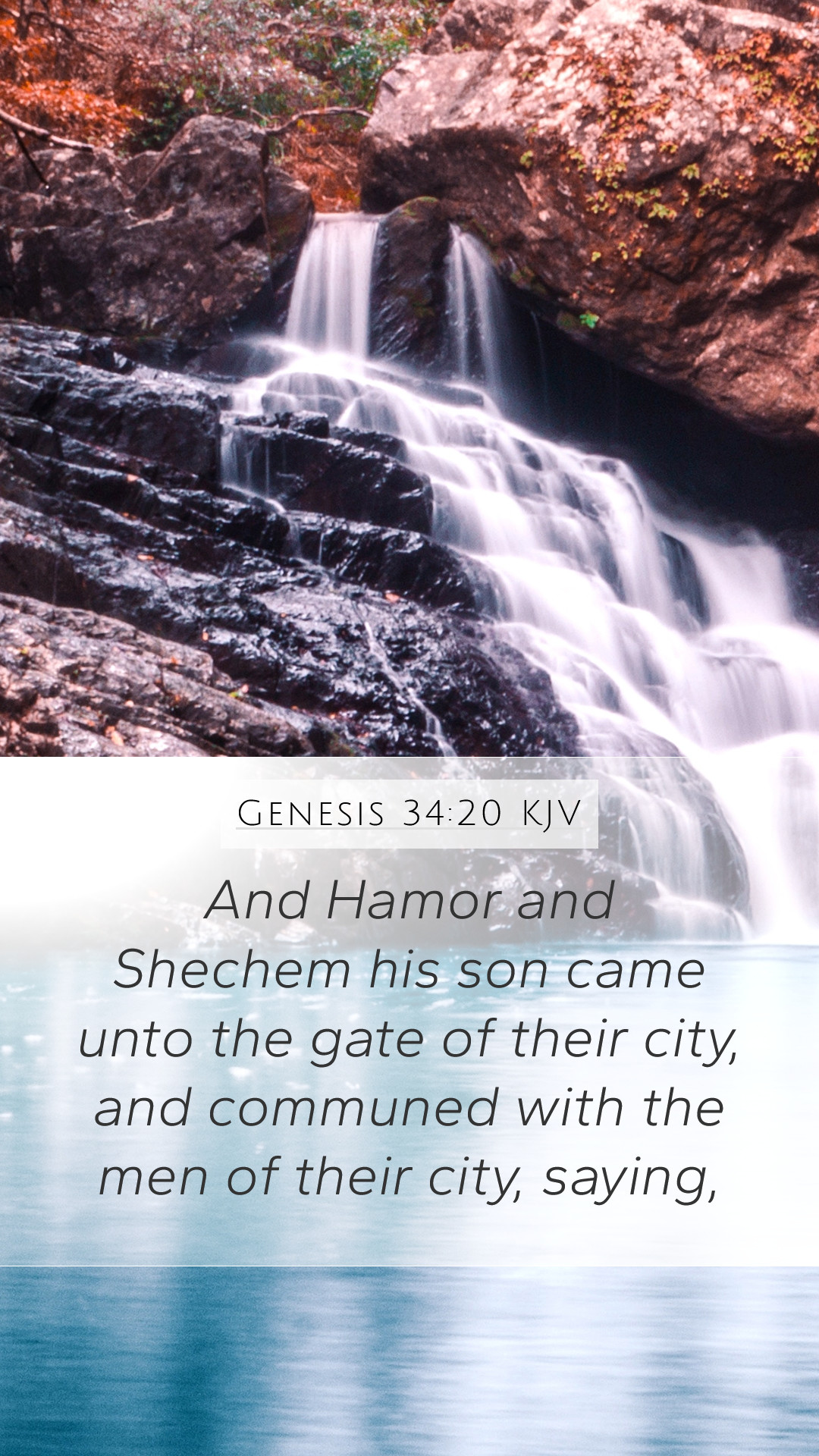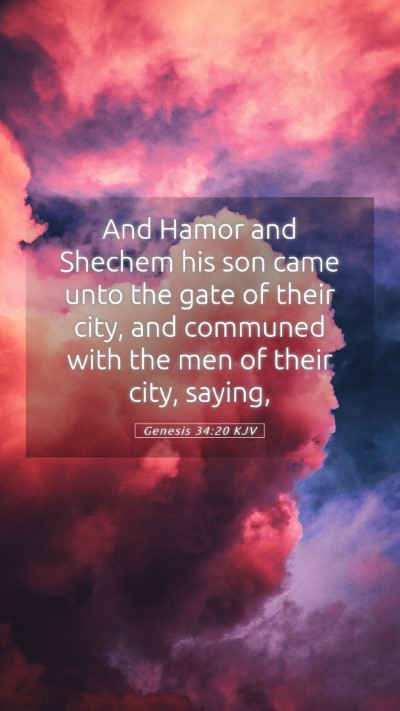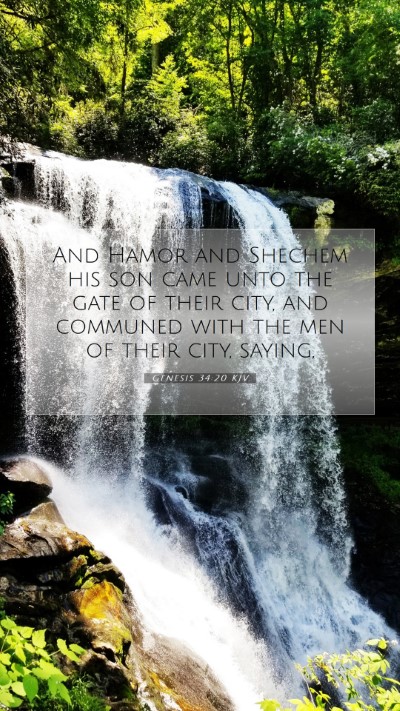Bible Verse Commentary on Genesis 34:20
The verse Genesis 34:20 states: “And Hamor and Shechem his son came unto the gate of their city, and communed with the men of their city.” This passage occurs within the narrative of Shechem's violation of Dinah, which results in significant consequences for the family of Jacob. Below, we summarize the interpretations and insights of prominent public domain commentators including Matthew Henry, Albert Barnes, and Adam Clarke.
Overview of Genesis 34:20
This verse serves as a transitional phrase to highlight the actions of Hamor and Shechem as they seek to formalize their intentions regarding Dinah. The city gate is a critical location in ancient Israel, serving as a center for legal matters and communal decisions.
Commentary Insights
Matthew Henry’s Commentary
Matthew Henry highlights the significance of the city gate, emphasizing that this location denotes authority and public affairs. Hamor and Shechem's approach to the gate signifies their desire to engage with the broader community in an official manner. Henry notes that Shechem’s earlier actions had repercussions that demanded a communal response, aligning their intentions with the customs of the time.
Albert Barnes’ Analysis
Albert Barnes provides historical context to the actions of Hamor and Shechem, detailing their strategy in seeking to unify with Jacob's family through marriage. He points out that this approach was rather common in ancient cultures, reflecting a desire for reconciliation through familial ties. Barnes emphasizes the peace negotiations taking place and the implications this has for the relationship between the two communities.
Adam Clarke’s Perspective
Adam Clarke discusses the characters of Hamor and Shechem in greater depth, illustrating their roles as leaders within their city. Clarke notes that Shechem’s previous actions regarding Dinah necessitated a response, and thus, their conversation at the gate was crucial for addressing the grievances of Jacob’s family. He highlights the moral and ethical considerations at play, advising readers to reflect on the consequences of Shechem’s actions.
Thematic Considerations
This passage presents several themes worth considering in Bible study and interpretation:
- The Role of Community: The decision to approach the gate signifies the importance of community involvement in personal and familial decisions.
- Moral Accountability: Hamor and Shechem's actions bring to light issues of justice and the need for accountability in society.
- Conflict Resolution: The desire to resolve tensions through negotiation is a central component of this narrative.
Applications and Implications
When studying this verse, readers are encouraged to reflect on how the themes of communal responsibility and accountability apply in contemporary contexts. The lesson extends beyond the historical narrative to inform modern principles of relationship building and conflict resolution.
Cross References
- Genesis 34:1-2: The account of Dinah’s violation.
- Genesis 34:13: The response of Jacob’s sons to Shechem’s actions.
- Genesis 34:25-31: The consequences faced by Shechem and Hamor's city.
Conclusion
Genesis 34:20 serves as a pivotal moment in the narrative of Dinah, highlighting themes of community engagement and moral accountability. By examining the insights of well-respected biblical commentators, readers can gain a deeper understanding of scripture and its application to modern life. This verse invites us to consider our own interactions within our communities while reflecting on the importance of mutual respect, justice, and the pursuit of peace.


